Arts
Examining the role of The Arts as a catalyst for healing, transformation and action
Introduction
The practice of Art—in its infinite forms, functions and implications—is the most accessible and universal way of constructing meaning out of the world we inhabit.
Our Philosophy: The Arts are not just for experts. They are not solely for the enjoyment of the elite. They are not a superfluous extravagance. The Arts are for us all, expert and novice alike. They are not just an end in and of themselves, but a means. They shape, and are shaped by the world we inhabit.
Students in the Arts Scholars program gain a deeper understanding of the impact of art as a means to explore society and culture against the backdrop of our individual differences and shared experiences.
What you can expect: No matter your major, area of artistic interest, or skill level, as a member of our community, you will be challenged to strengthen your personal artistic skill set, experiment with new and different art forms, and gain a deeper understanding of the value of the arts in our personal and collective lives. We will investigate the power of the arts to:
- Communicate difficult concepts
- Advocate for social change
- Investigate the human experience
- Explore our own identities
- Develop our capacities as creative problem solvers and critical thinkers
- Reinforce, but also upend, existing systems of inequality and oppression
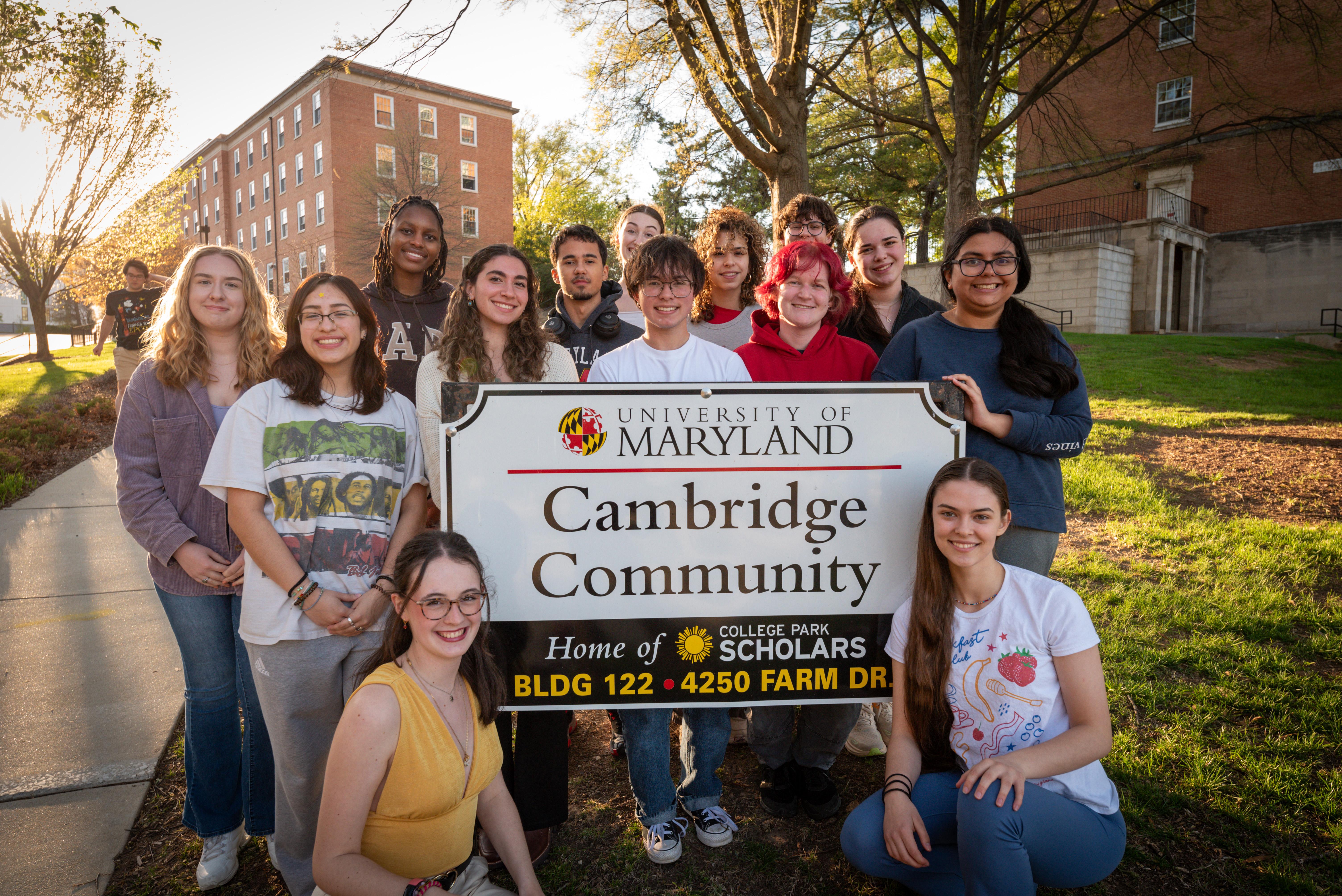
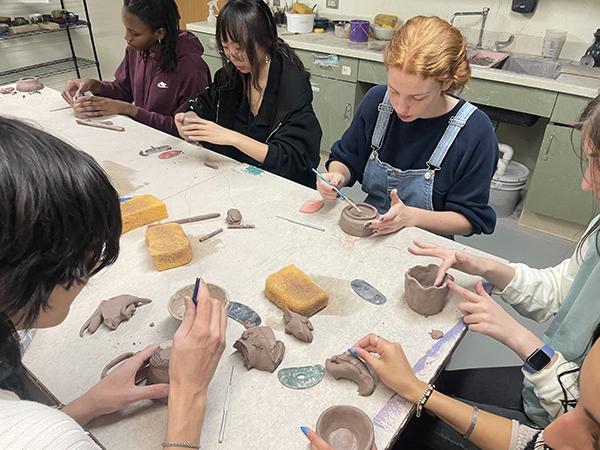
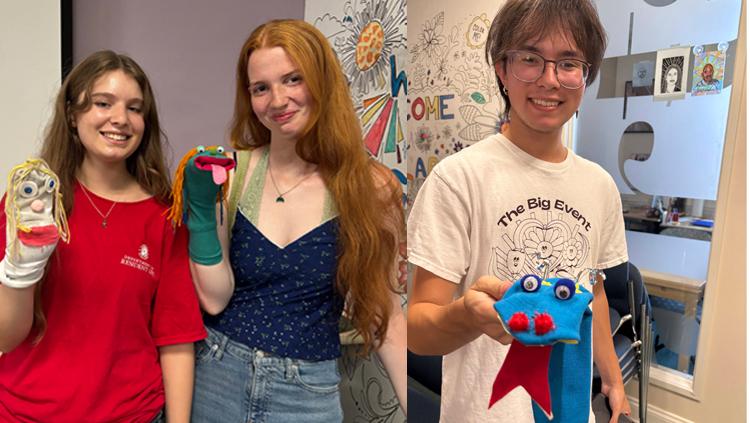
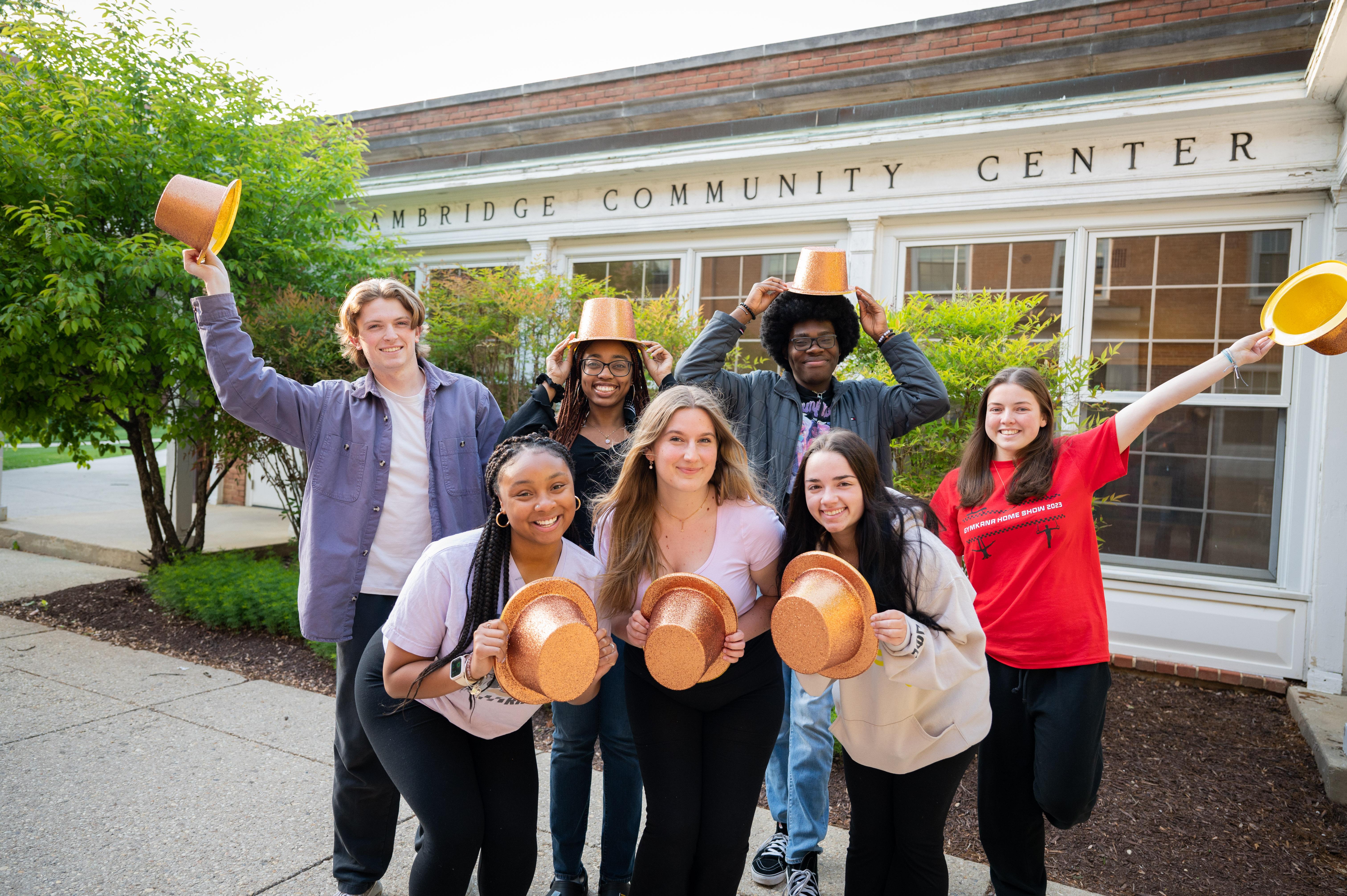
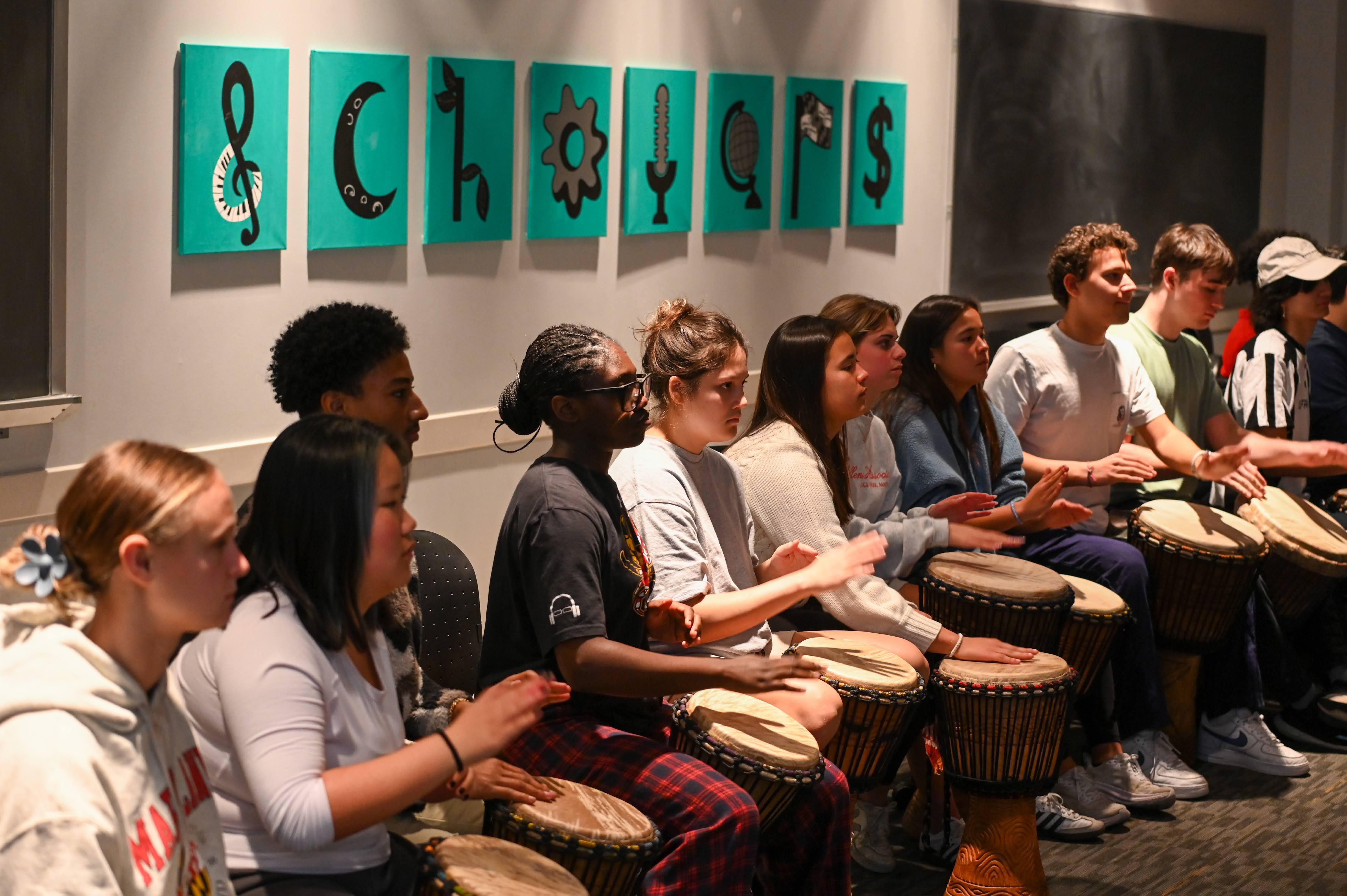
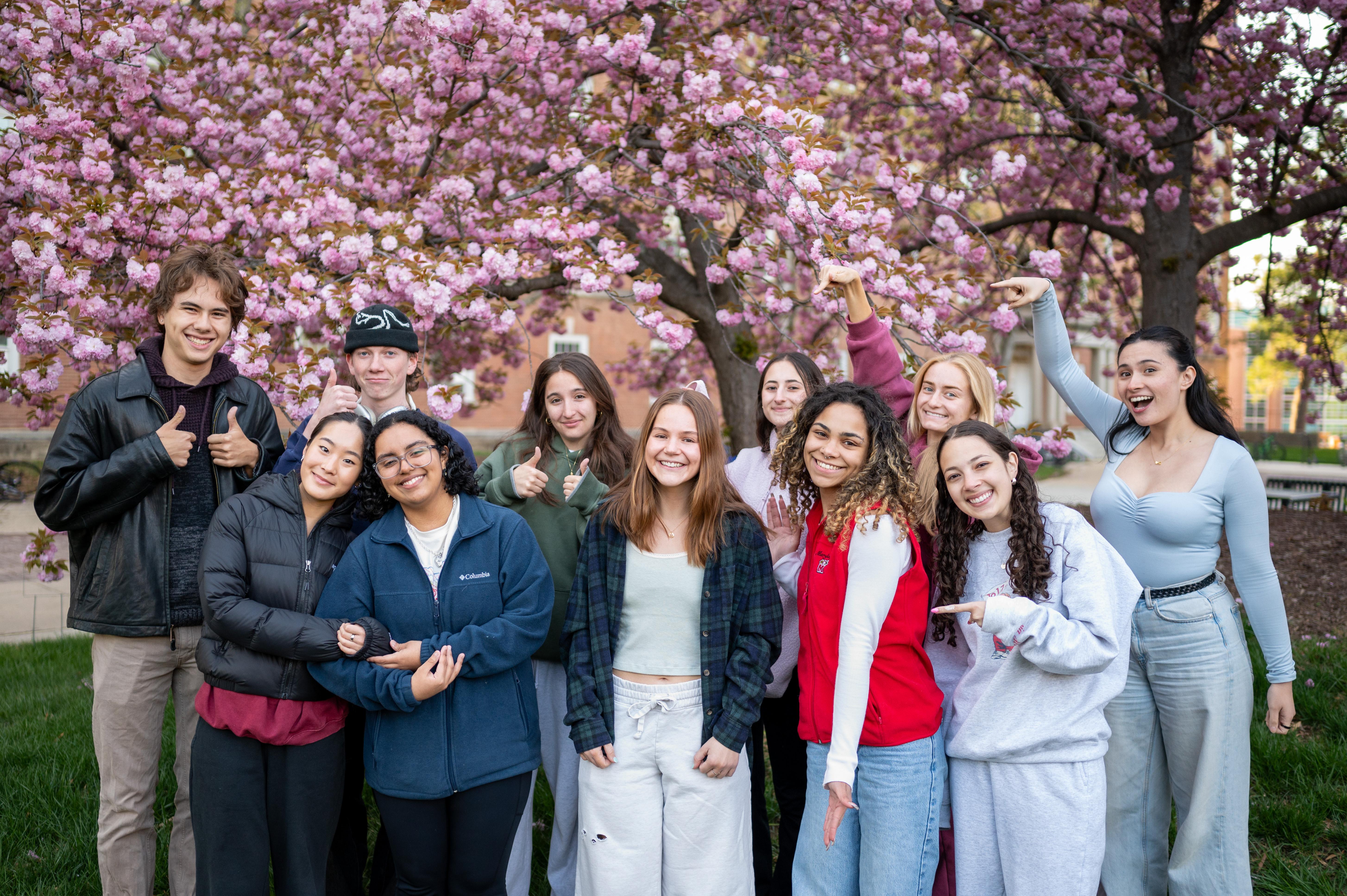
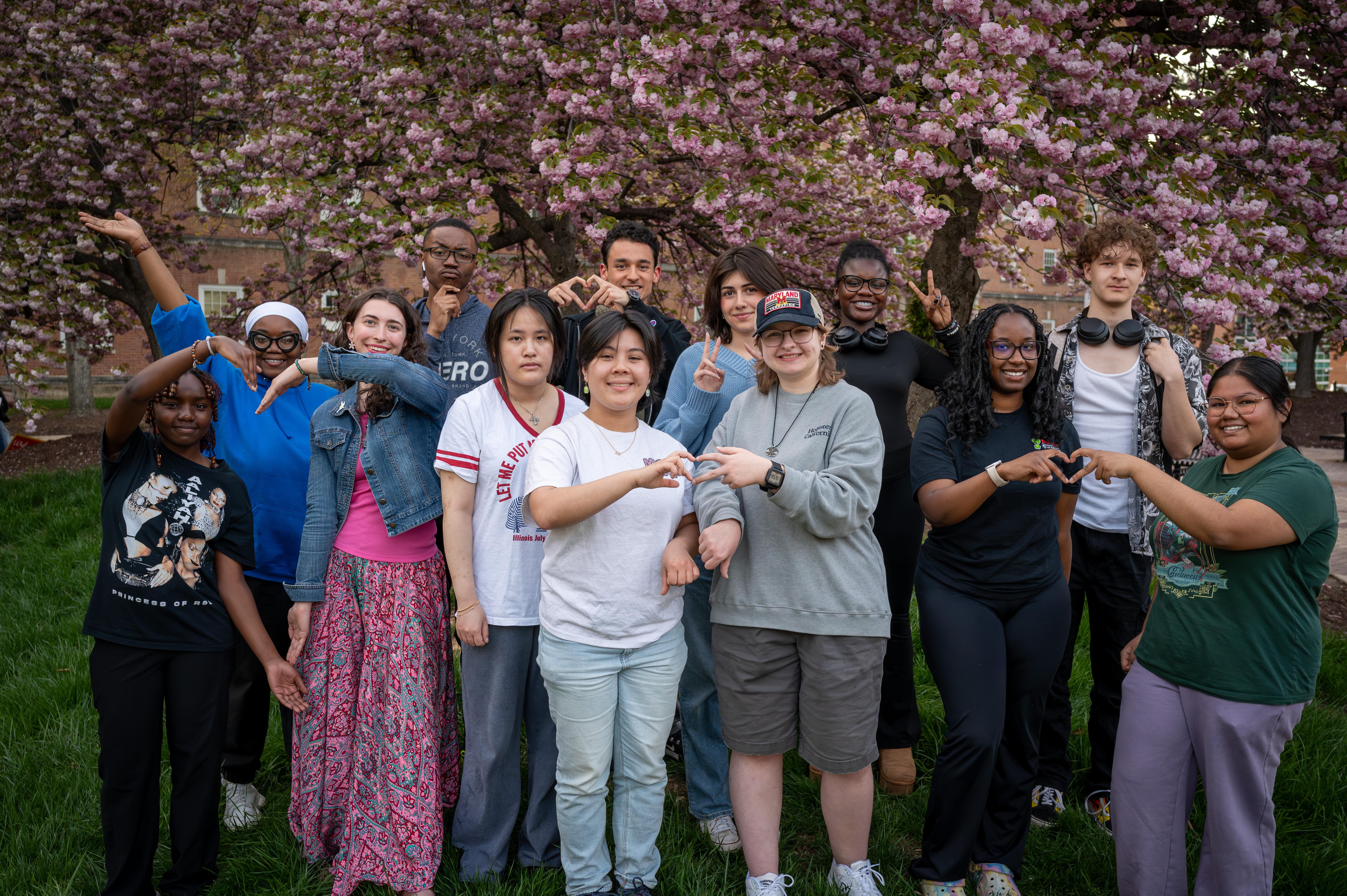
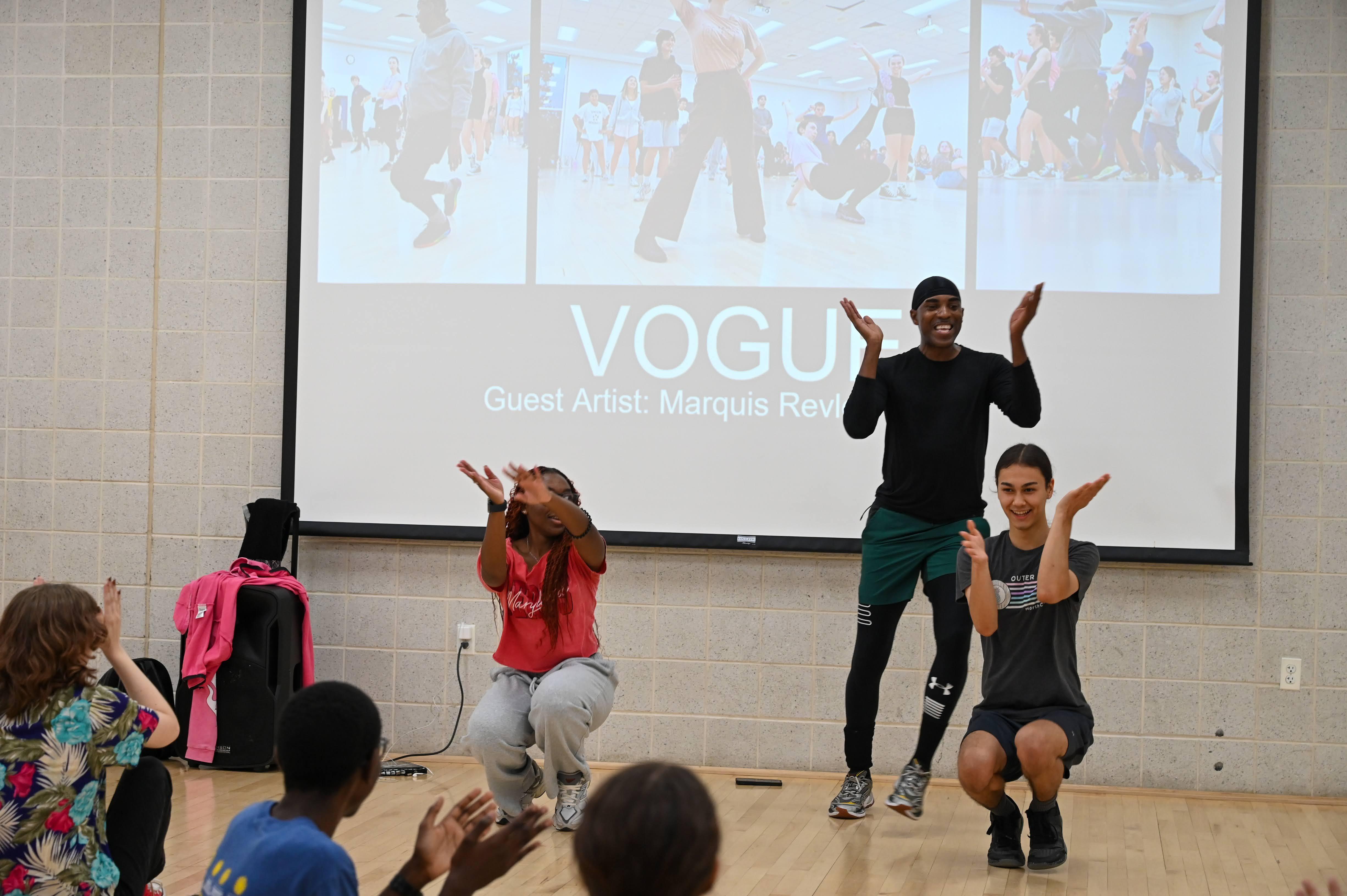
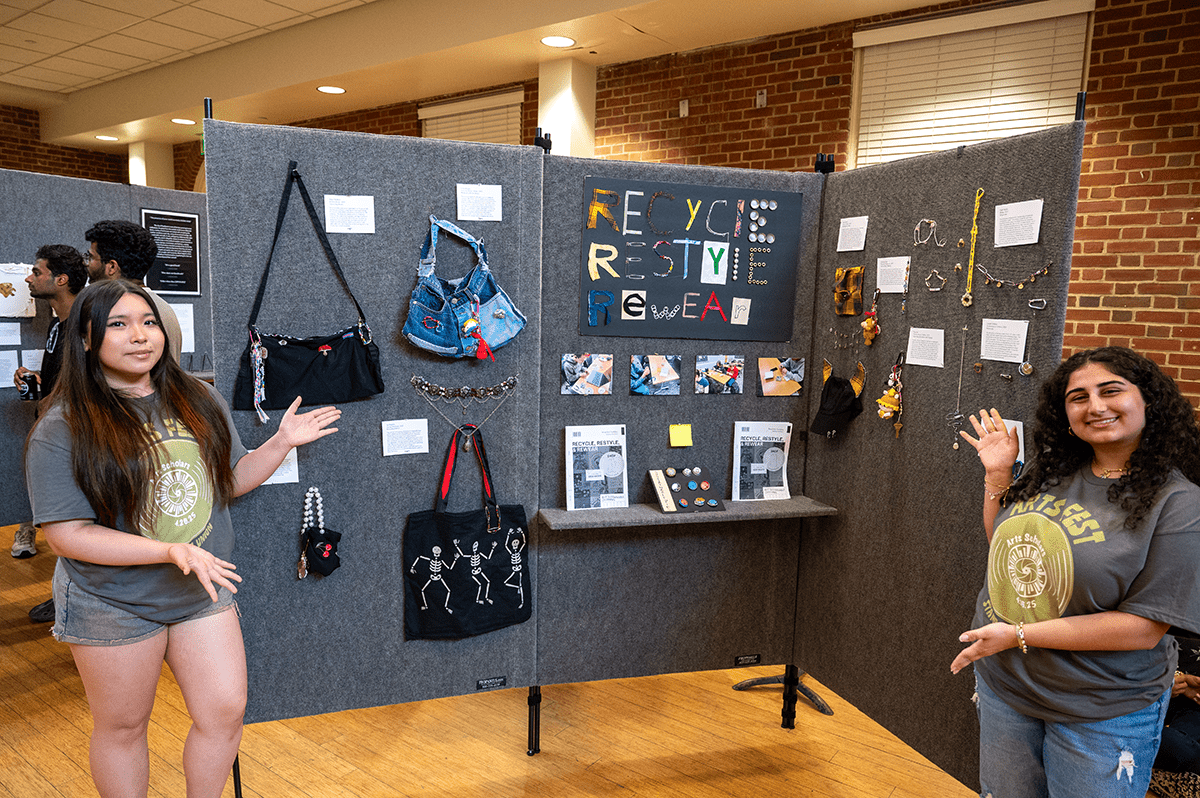
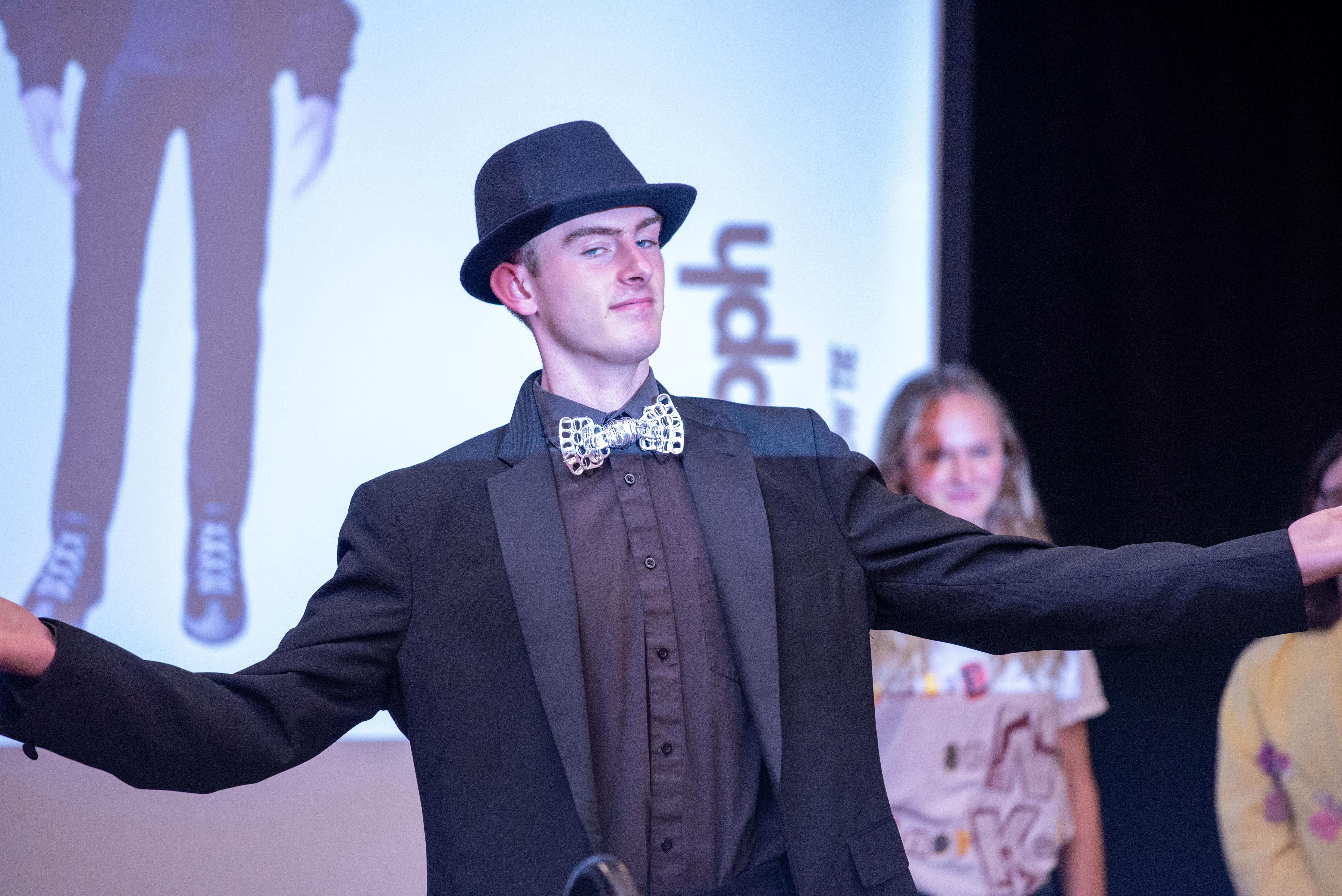
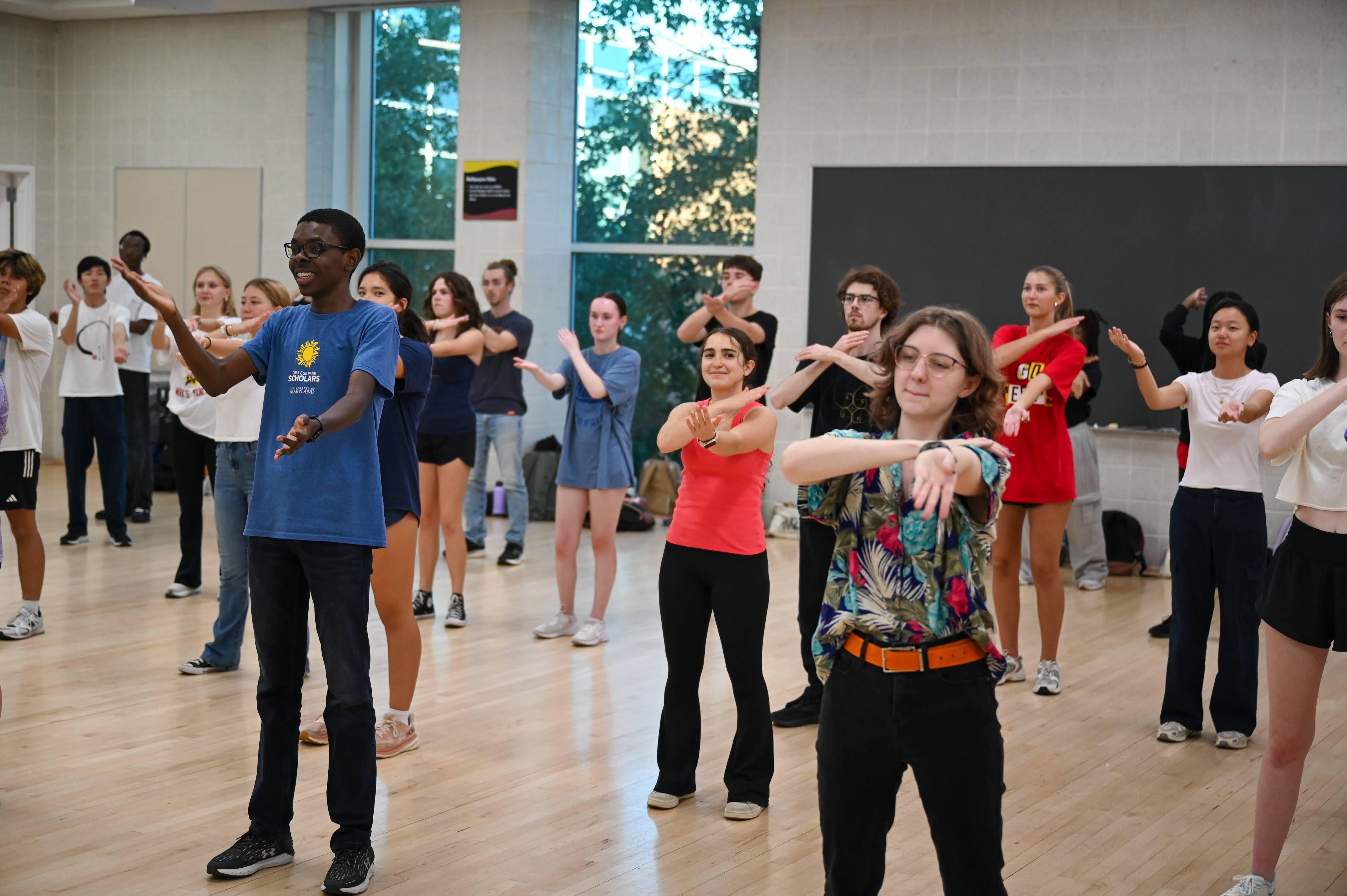
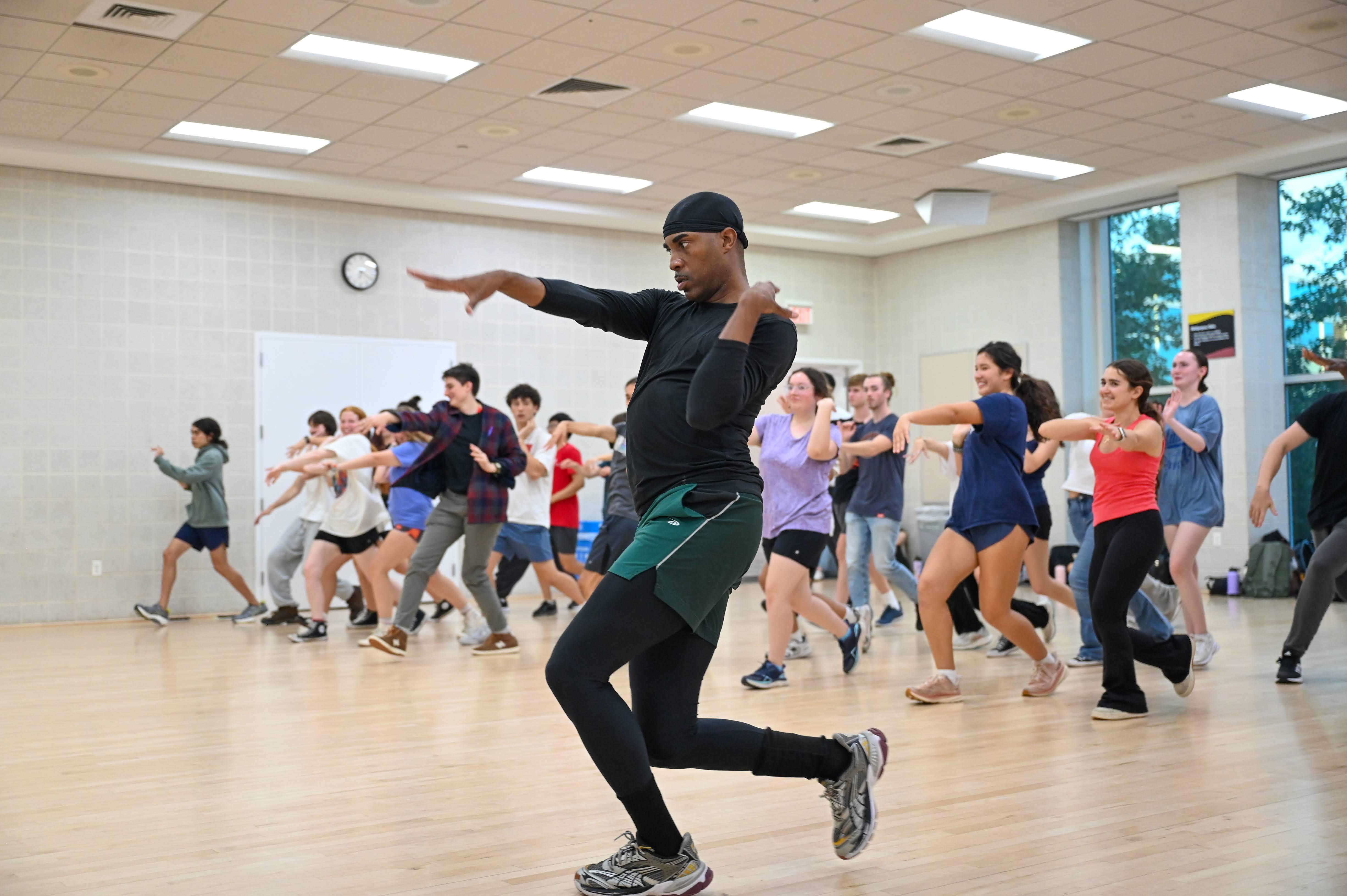
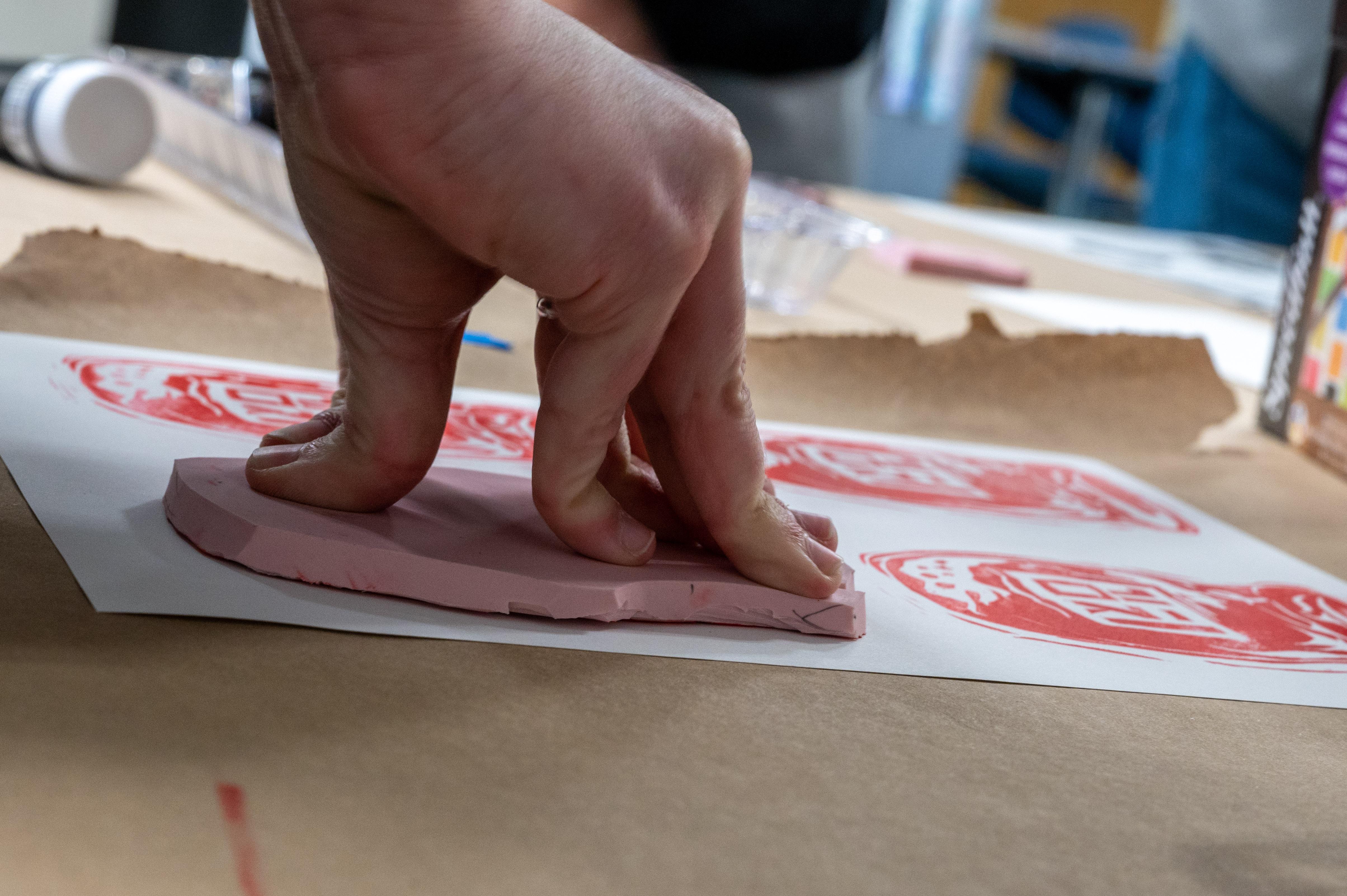

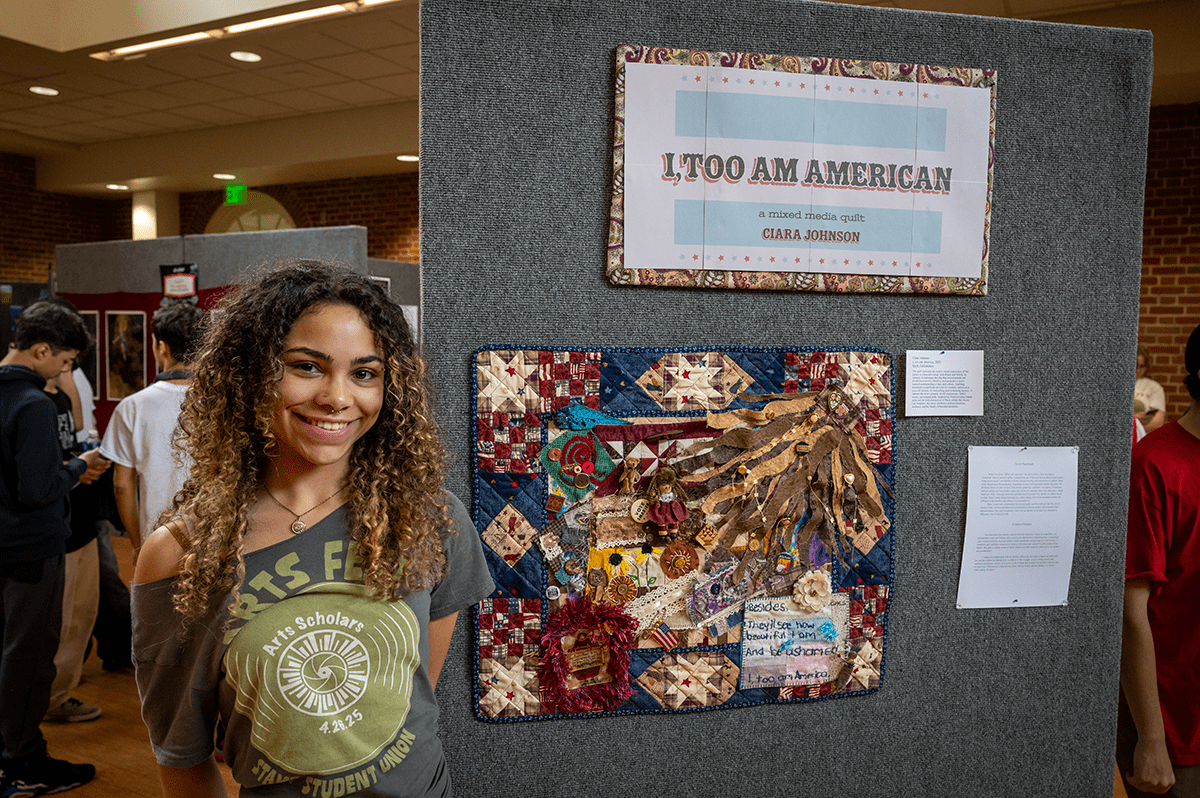
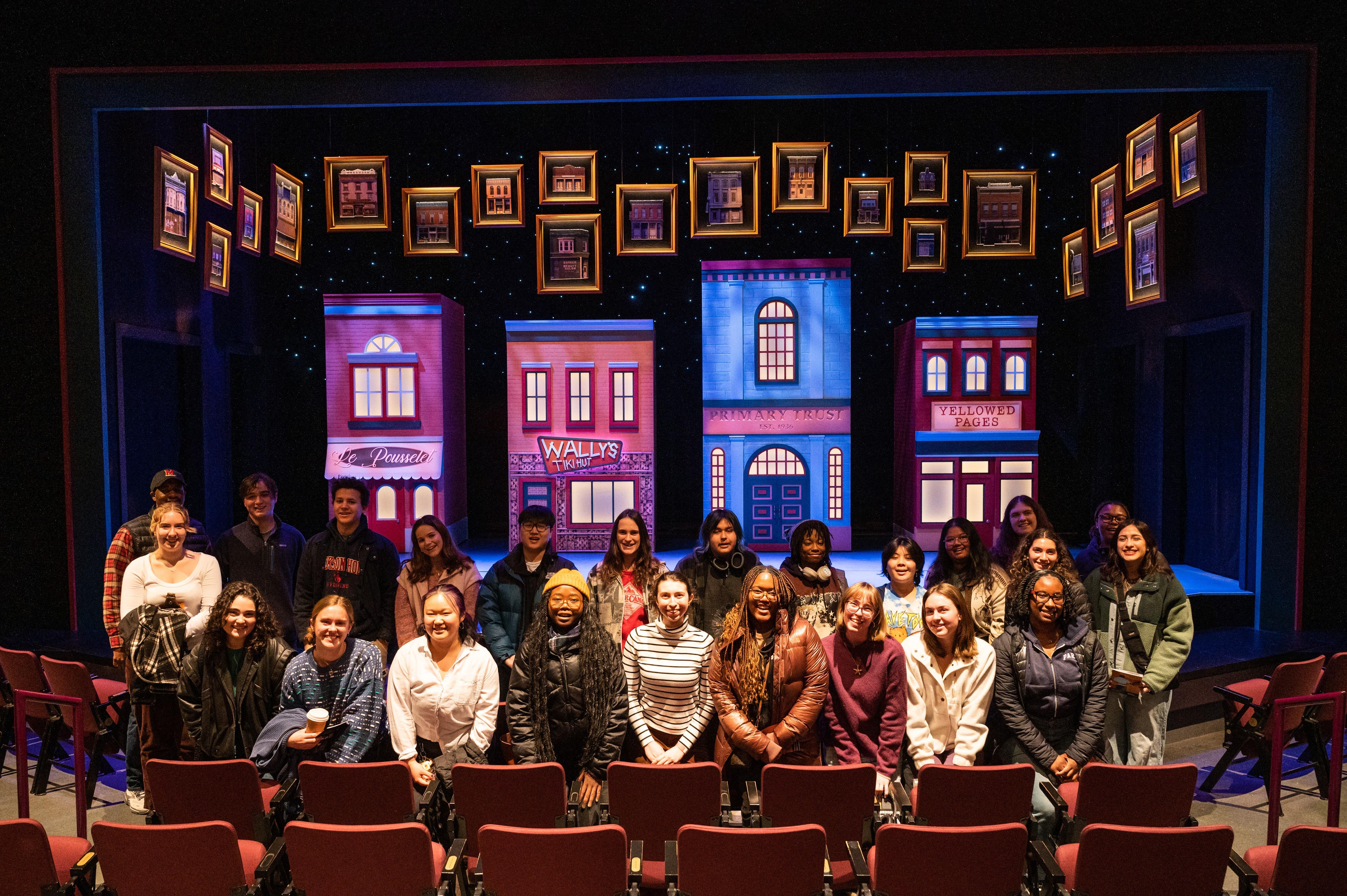
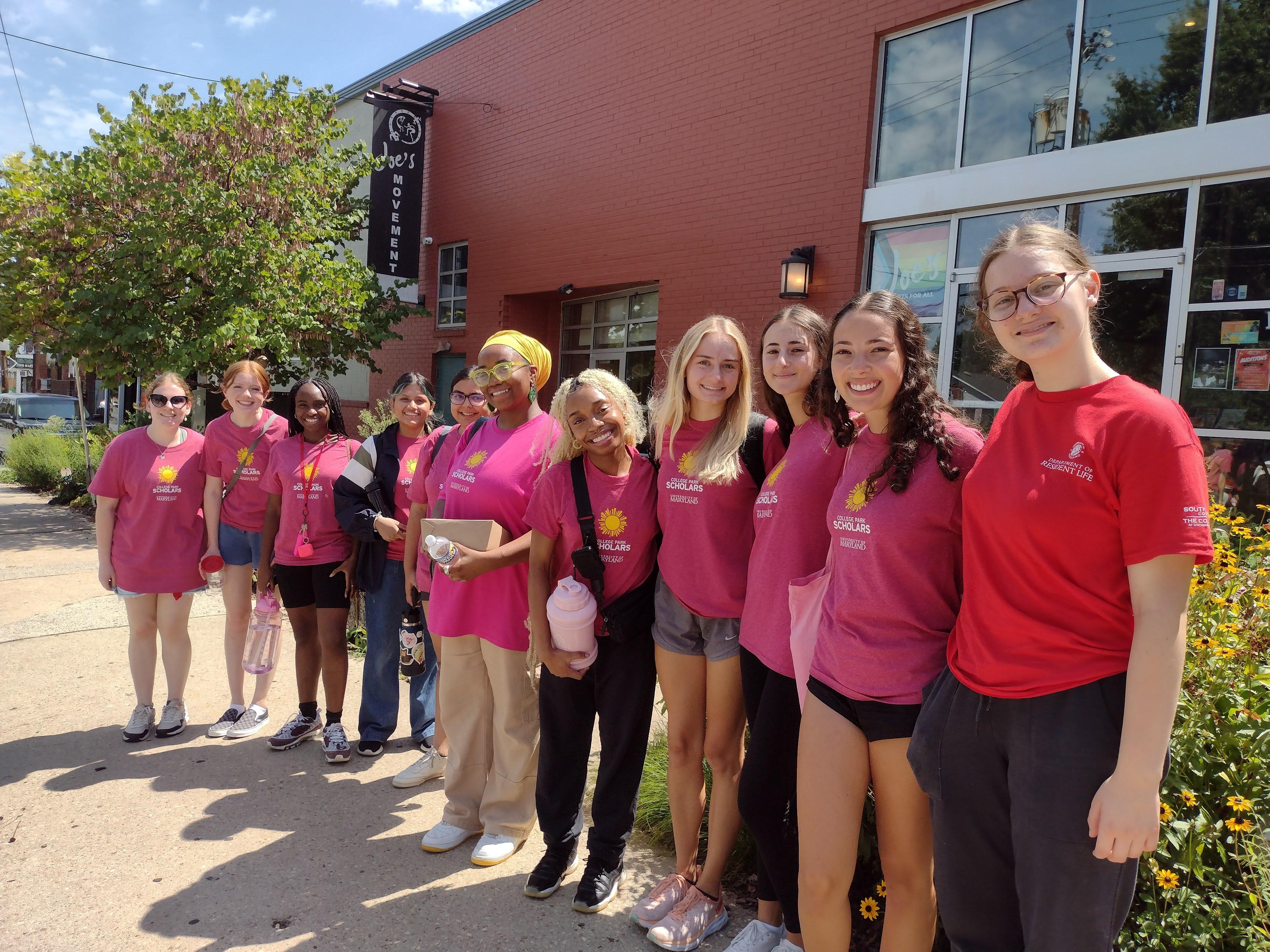
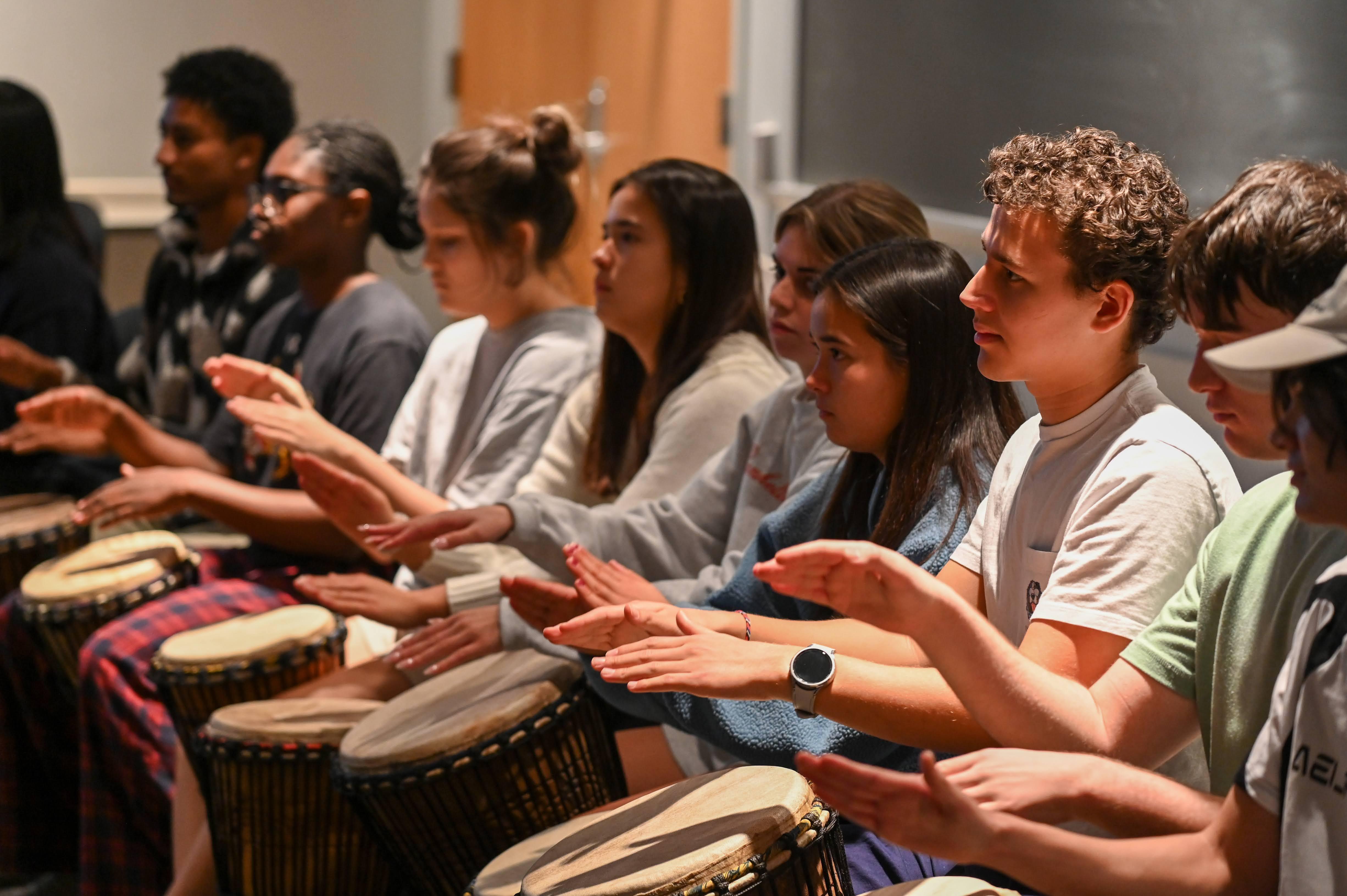
Colloquium and Lecture Topics
Through a mix of lectures, discussions, and guest artist workshops, and experiential projects, students consider (see our most recent “Year in Review” page for photos!):
- Vogue Dancing: How can art be used as a tool for resilience, resistance, and social chance?
- Artistic Consumption: How is artistic “taste” shaped by our social identities?
- Creative Research: How can empirical research, rapid iteration, and prototype testing improve your creative process?
- Spoken Word Improv: How can the principles of improv inform and improve our everyday lives?
- Campus Galleries: How can slow-looking help us combat the pressures of a frenzied world?
- West African Drumming: How can music build community, tell stories, and promote intercultural understanding?
I have been challenged to think differently, work cooperatively, embrace creativity and, most importantly, go beyond the limits I have set for myself. Because of this program, I can confidently say I feel infinitely more prepared for the “real world,” and for that confidence and growth, I could never be more grateful.
Other Learning Opportunities
Outside the classroom, Arts Scholars have many other opportunities….
Experience the arts first hand:
- Field trips: Each semester students visit locations such as The Clarice Performing Arts Center, the Everyman Theatre in Baltimore, the National Gallery of Art, and the National Museum of African American History and Culture.
- Maker Mixer: Teaching Assistant led community building events that include crafting, visiting campus galleries and maker-spaces, and attending shows on campus.
Creative Capstones:
- Sophomores develop capstone projects - identifying a social issue of significance to them to be explored through an artistic medium of their choosing. The capstone project is about your unique view of the world and what you want your audience to understand or experience as a result.
- All capstones are displayed at ArtsFest- an annual exhibition of student work in the Stamp Student Union.
Leadership opportunities:
- Arts Media Team: Social Media & Newsletter assistants work with Arts Faculty to research, draft, and publish the weekly newsletters and Instagram posts to the community.
- Arts Teaching Assistants: Arts Scholars graduates build their skills and experience leading discussions, developing events, and serving as mentors to current students.
Curriculum Overview
Over the two-year program experience (four semesters), students will complete up to 6 credits of supporting courses that will count toward your Arts Scholars citation. In most cases, these will also fulfill General Education requirements. Note that your Scholars courses—colloquiums, capstone practicum and supporting courses—will generally be in addition to any courses you take to satisfy major requirements.
The following represents a typical two-year curriculum, but individual schedules may vary. Details about courses and requirements can be found on the Arts Citation Checklist.
| SEMESTER | COURSE | CREDITS |
|---|---|---|
| Semester 1 | CPSA 100: Colloquium I | 1 credit |
| Semester 2 | CPSA 101: Colloquium II | 1 credit |
| Semester 3 | CPSA 200: Colloquium III | 1 credit |
| Semester 4 | CPSA 201: Colloquium IV | 1 credits |
| CPSA 240: Service Learning; or CPSA 250: Research (DSSP); or CPSA 260: Peer Teaching (DSSP) |
2 credits 2 credits 2 credits |
|
| Semester 1, 2, 3, or 4 | Supporting Course (var. Gen Ed) Supporting Course (var. Gen Ed) Supporting Course (DVUP or DVCC) |
3 credits 3 credits 1-3 credits |
Sponsoring College
Faculty
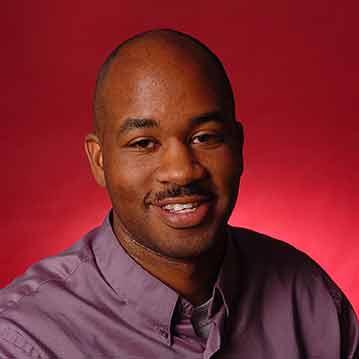
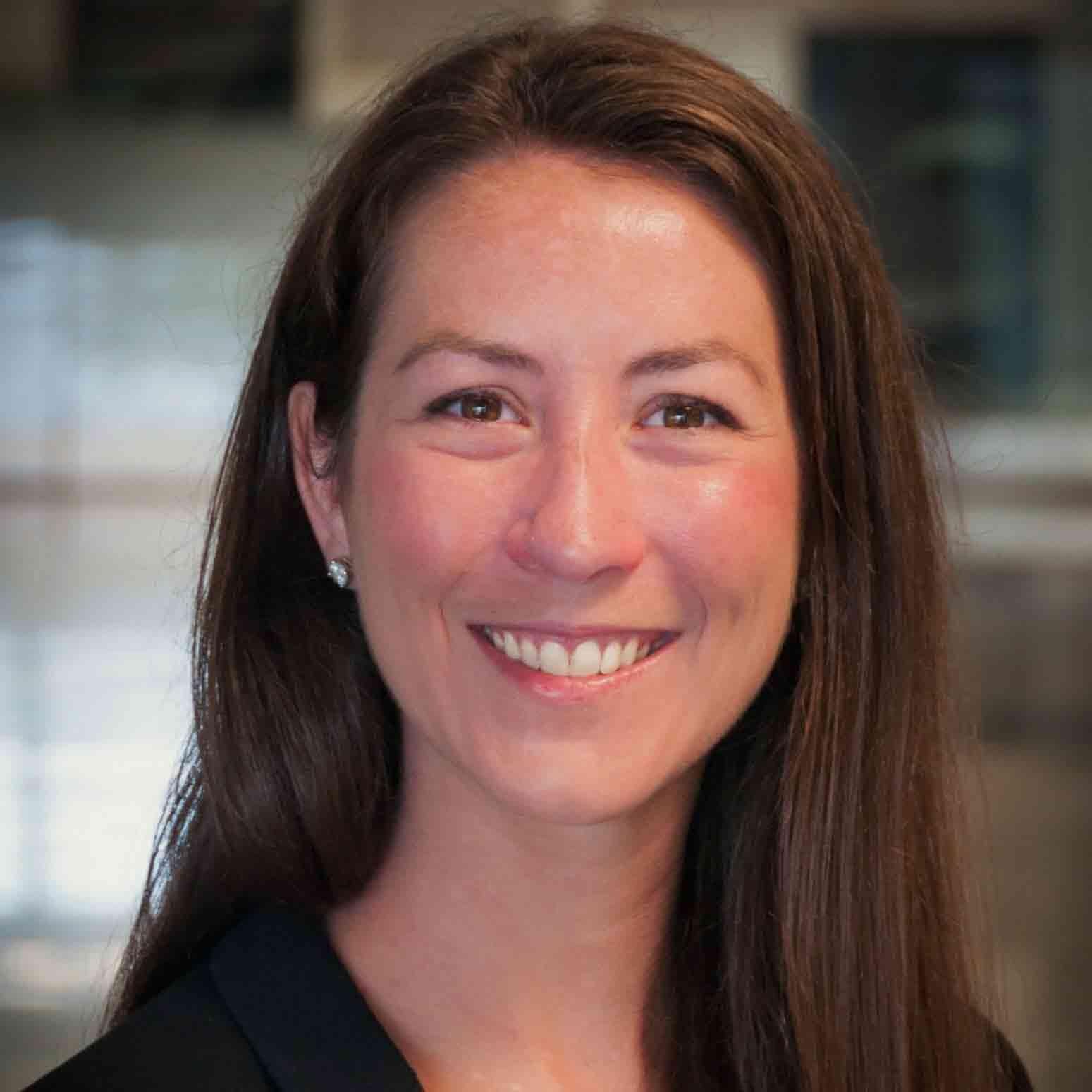
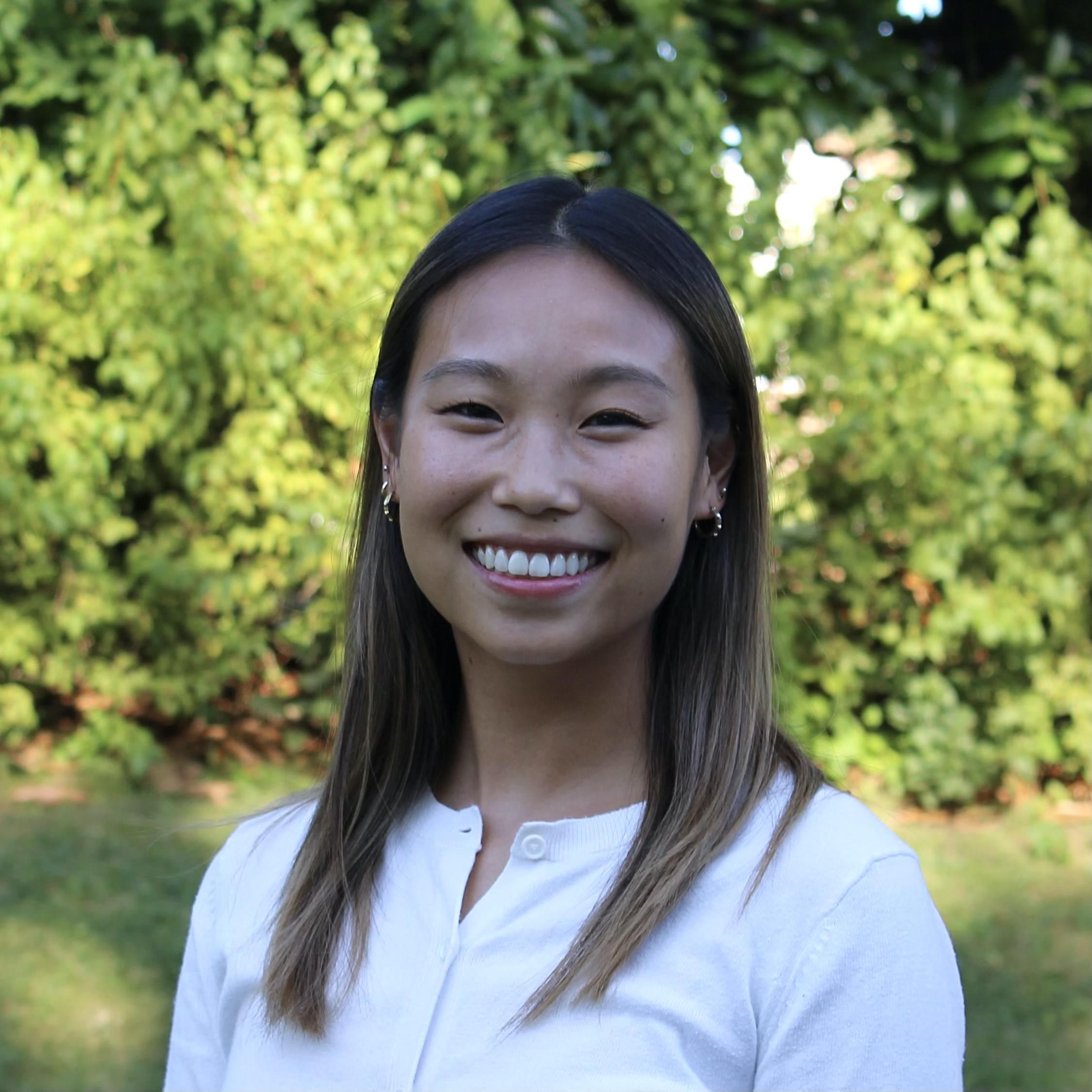
The Diamondback: UMD students' dance workshop highlights Japanese Butoh style, May 2022
Arts News
Mckinley’s Climb
In the “fireman’s carry,” a wrestler hoists an opponent over their shoulders before flipping them to the mat. It sounds like a move favored by mountainous pros like the Rock or the Big Show, but it’s also the favorite of a freckle-faced 5’5” Terp who stands among the nation’s best female collegiate grapplers.Then-freshman Mckinley Jovanovic, who is a Public Leadership scholar, won last year’s National Collegiate Wrestling Association (NCWA) Mideast regional tournament in the women’s 131-pound weight class—a first for a UMD woman in any class—and finished fifth in nationals to net All-American honors.
From Timeout to ‘Now a Terp’
Three local high school students attending the University of Maryland’s men’s basketball matchup vs. Penn State thought they’d been selected to play a “find Testudo” game at midcourt.What they found instead is their future for the next four years: Kingsley Nwogu, Laura Civillico and Joseph Southall were each handed letters welcoming them to UMD’s Class of 2030. Laura and Joseph were also the first to discover they had been invited to College Park Scholars.
PL Alum Tapped to Lead State Government Relations
The University of Maryland recently named Maryland Delegate Jazz M. Lewis as its director of state government relations. As director, Lewis will serve as the university’s primary liaison to state and local officials, working closely with senior leadership, faculty and campus partners to advance UMD’s priorities.Lewis is a two-time graduate of the University of Maryland, earning a Bachelor of Arts in government and politics and a Master of Public Policy degree. As an undergraduate, he participated in College Park Scholars’ Public Leadership Program, an experience he credits with launching his career in public service.
14th Good Neighbor Day engages volunteers
Students from Data Justice were among many College Park Scholars programs participating in the 2025 edition of Good Neighbor Day throughout the city of College Park and surrounding areas.
Transforming Campus Cultures for Good
Many transformative practices that University of Maryland College of Education researchers, including College Park Scholars' coordinator for student engagement Dr. Ashley Ogwo, have uncovered in a study of how higher education institutions are facilitating success for their Black, Latine, Indigenous and low-income students.

